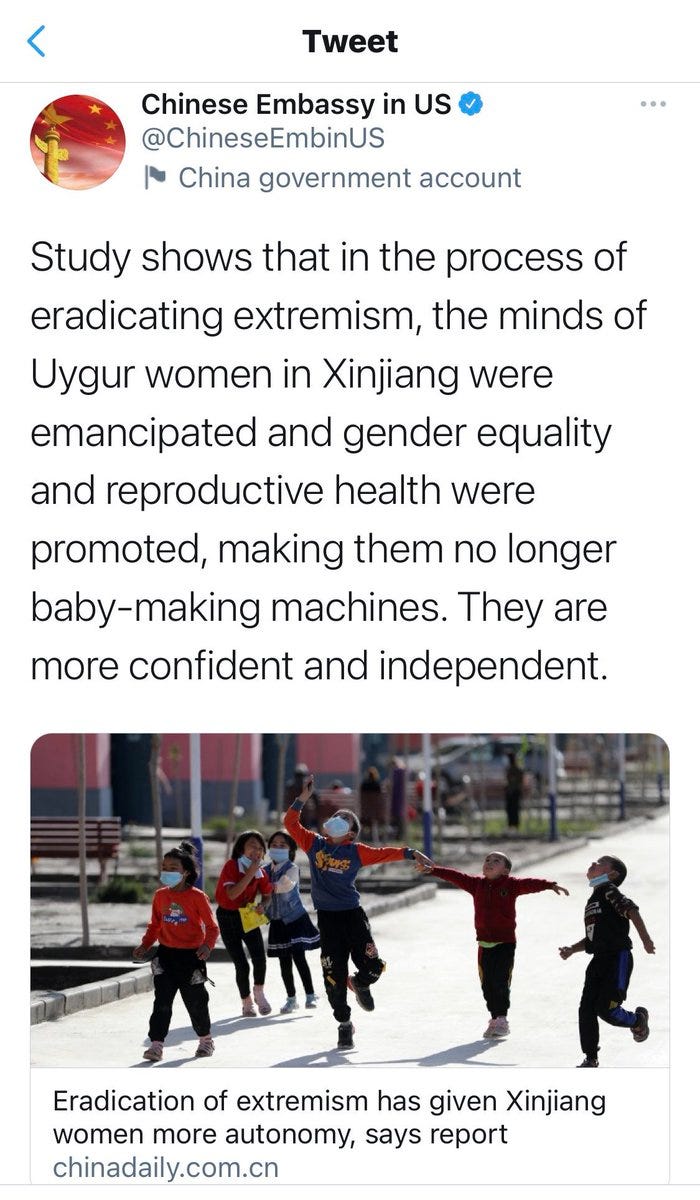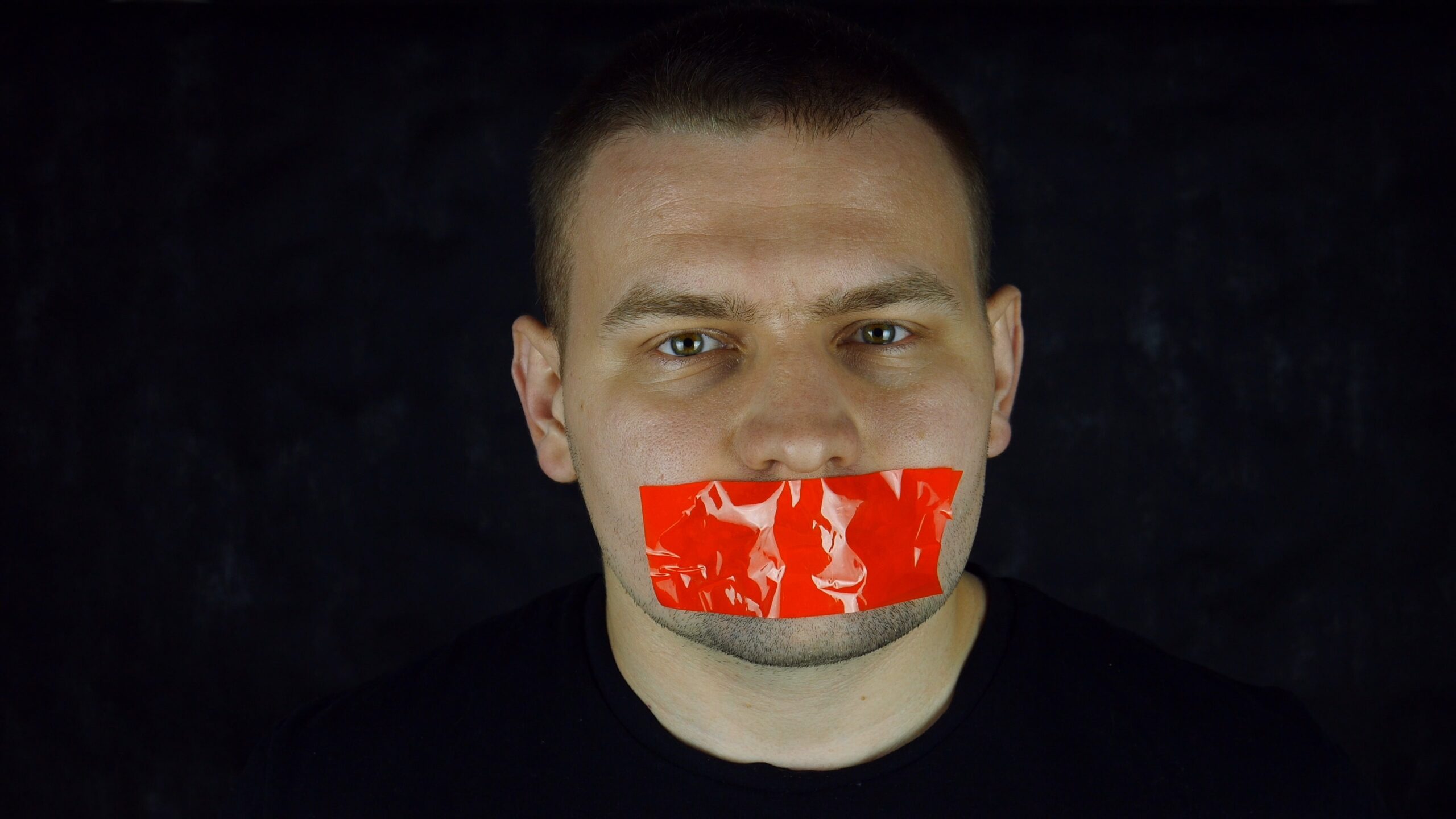One of the basic human rights is the right to freedom of speech, which article 10 of the equality and human rights act states as “the right to hold your own opinions and to express them freely without government interference”. Thanks to the internet, anyone is only a retweet, share or like away from a message becoming viral but not all messages are allowed the grand stage of viralness (level of virality) as they can and have been getting cut off by social media platforms.
As technology companies grow so too does their power, and by power, this is in relation to the local government. Serious questions need to be posed as to the level of control technology companies posses, as it seems they can make and break the rules to suit them.
In this article, we explore the growing and real issue of online censorship.
Shh… you’re talking too much
In 2020 last year, the world had to deal with a new pandemic, with countries employing serious lockdown measures and scientists and local government working around the clock on how to best deal with Covid (I use the term “pandemic” in the lightest sense as the seriousness of the pandemic has been strongly questioned as being related to the measures put in place and not necessarily covid).
A rather disturbing case of censorship happened to eminent professors Carl Heneghan and Tom Jefferson by the social media giant Facebook, on their Danish evidence-based study DANMASK-19 which talks about face masks having little to no effect in the containment of SARS-CoV-2 (covid).

Despite this being published in a peer-reviewed journal which should be sufficient for its credibility alone, Facebook deemed this as misinformation and instead of allowing other scientists and readers such as ourselves to come to our own conclusions, they decided they’ll do that for us.
How does a social media platform have the right to silence a professor who did something so daring as to share their study which questsions the status quo?
Facebook was criticized strongly by the BMJ (British medical journal) for its “shushing” of the evidence-based study.
A more popular example which some people were outraged by and others quite glad was the banning of former US President Donald Trump from social media. I won’t delve into my opinion of him as I think “Y.G” the Compton US rapper has pretty much summed how I feel about him in one song. Nonetheless, I disagree that he should have been banned from Twitter while other accounts that have a similar if not worst track record have been allowed to tweet scott-free.
Below is a tweet from the Chinese Embassy which clearly talks about the on-going genocide happening in Xinjiang (The tweet has since been removed by Twitter).

It seems that social media platforms tend to have this picking and choosing habit when it comes to censorship. We need to be careful of the true motives behind platforms allowing certain content, also government officials need to step in and provide some sort of rule book, or at least draw a few lines to mark the field of play for these giant-tech companies who more times than can count step out of bounds.
One rule for them, another for us
In recent weeks, the financial world has been shocked by everyday investors who took head-on the rich and powerful Wallstreet hedge fund companies. They achieved this by banding together on Reddit the social platform and encouraging people to buy shares from the company Gamestop, who Wallstreet attempted to make billions from the company’s predicted failure by “shorting” them.
(Here’s a video by Youtuber- Johnny Harris that explains Shorting and the GameStop fiasco in some cool details)
Trading and investing have been somewhat gamified through cool UI (user interface) with the likes of apps such as Robinhood and Webull etc. This translates into investing being no longer limited to a marginalized few but rather anyone with a smartphone and a few dollars spare, can buy shares in multinational companies with almost zero fees and instantly.
The group called “Wallstreet bets” were the driving force for the whole drama and promoted the message to take down the hedge funds and within two weeks, the price of the stock went from $17 to a whopping $483 an increase of over 1500%.
The stock market is a game and immediately billionaires started losing they simply unplugged the power or in other words rage quit. Discord the server company for Reddit banned the subgroup citing hate speech as the cause for the ban. On top of that, Robinhood blocked users from buying further Gamestop shares to prevent any further financial damage to these hedge funds.
Things get even messier when you dig into who funds Robinhood which has ties with one of the hedge funds who took a huge short position on Gamestop so they all kinda web into the story and have invested interest in keeping each other afloat. The Reddit group and Robinhood feature have since been restored but this initially caused an uproar and rightly so.
This raises the question: Why was Robinhood allowed to limit certain features on their application?
The CEO of Robinhood was questioned on CNN and his response as to why they did this… well I don’t want to sway your opinion but you can watch it for yourself below and decide whether you believe it or not.
An on-going investigation is underway by the SEC for Robinhoods involvement in halting trades.
The need for decentralized platforms
If there ever was a need for decentralized platforms free from central authority it’s now. Time and time again companies have used and abused their power by censoring whoever they feel like under the guise of “our platform policy”.
Thankfully, new companies have started to build DApps (decentralized applications) which work in a similar way to cryptocurrencies which are not governed by a central authority like a bank, instead are made and controlled by the users.
An example is the Theta network which is like Youtube but a decentralized version and Injective protocol a decentralized stock and share exchange which is an alternative to Robinhood.
Once these decentralized platforms become mainstream, then instances like Facebook censoring content could just be a thing of the past.
Where do we go from here?
The reason why internet censorship should be seen as a huge problem is by them interfering with the flow of information, potentially this can lead to uninformed decisions and even policy changes e.g Brexit referendum. In the Uk around half of the population get their news from social media and around 1 in 5 from the US which means the information coming out from these platforms must be un-filtered showing both sides of a story.
A possible solution as mentioned earlier is decentralized platforms that aren’t governed and easily swayed by those with money/power. Another solution could be providing tougher crackdowns and regulations for existing companies who break the rules. I mean part of the problem is because the internet is so revolutionary and only just maturing, countries are still struggling to draw lines for tech companies on issues such as what can be done with our data and who has access to it.
Finally, it is important that despite disagreeing with someone we should always allow freedom of speech to play its role and not silence anyone, or else we are no different from platforms that censor things they don’t agree with.




